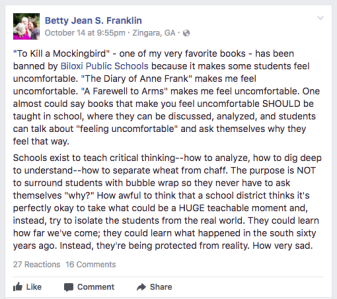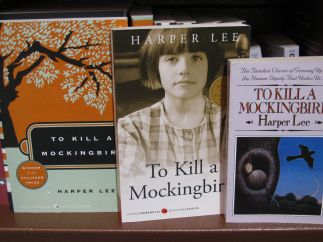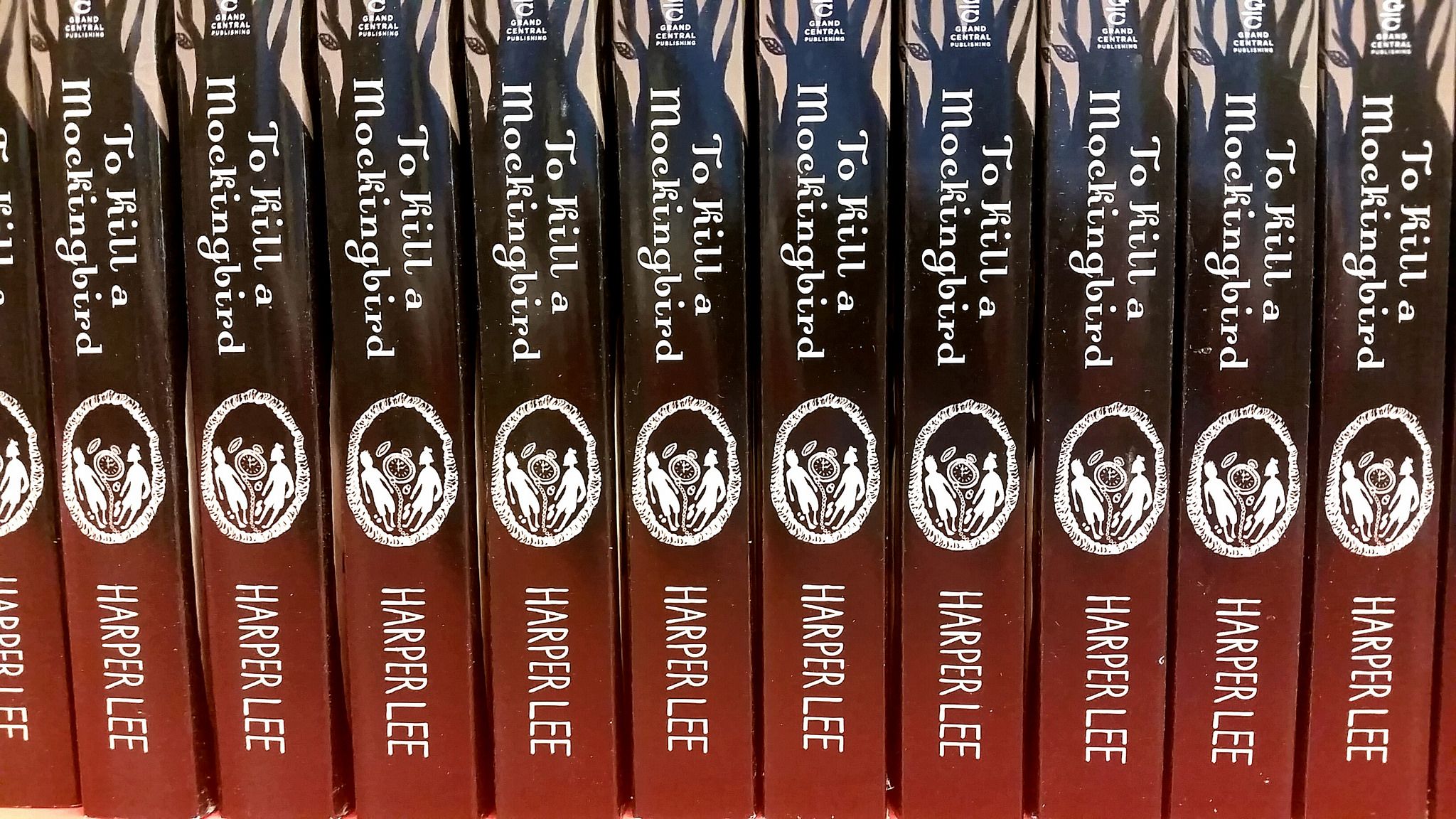
“Making people uncomfortable and forcing them to confront themselves and others is the point of great literature,” Bill Keeney, high school English teacher at Delaware Valley Friends School, says.
‘To Kill a Mockingbird’ became an instant bestseller and a critical success when first published in 1960, winning the Pulitzer Prize in 1961 and later made into an Academy Award-winning film, according to goodreads.
However, in Biloxi, Miss., a public-school district pulled the classic from an eighth-grade reading list on Oct. 13. School Board Vice President, Kenny Holloway told Sun Herald, “There is some language in the book that makes people uncomfortable.”
According to Banned and Challenged Books, books can be banned because the material could be considered to be “sexually explicit,” the material contained “offensive language” or the material was “unsuited to any age group.”
Dr. Tom Conway, assistant professor of teacher education at Cabrini, said by email, “The often cited issue with ‘To Kill a Mockingbird’ is the use of profanity and racial slurs. Harper Lee presents a version of the South that some people would like the erase from history. I don’t believe in banning books at all. I believe in our freedom of speech and thought, which has been upheld by the Supreme Court.
Quickly answering to this decision, many on various social media platforms, like Facebook, voiced their opinions.

“‘The Diary of Anne Frank’ makes me feel uncomfortable. ‘A Farewell to Arms‘ makes me uncomfortable. One almost could say books that make you feel uncomfortable SHOULD be taught in school, where they can be discussed, analyzed and students can talk about ‘feeling uncomfortable’ and ask themselves why they feel that way,” said Betty Franklin over Facebook publicly from Georgia.
Lexi Davis from Bradenton, Fla., posted on Facebook, saying, “Book censorship and whitewashing history is NEVER okay.”

While officials are staying with their initial decision of banning the book, many people like TNathan L. Fairley, living in the community, attended a town hall meeting, discussing various topics including the banning.
“When I first heard that the Biloxi School District was going to remove the ‘To Kill a Mockingbird’ from the required reading list, I thought it was a joke,” Fairley said. “I could not believe a book about racial tolerance was being removed from the must-read curriculum.”
During the town hall meeting that was recorded by Fairley, a member of the board said, “The book was not banned from the school; it will still be in the library. It just will be removed from the eighth grade required reading curriculum.”
Reflecting on the town hall meeting afterward, Fairley said, “When I saw the attendance of the meeting, I thought how all the online outrage was useless without parents showing up to make their wishes known.”
“‘To Kill a Mockingbird’ is more than just a book with racial slurs. It is upsetting that the present day teachers and administrators see it for the language rather than the story and the character’s development. As an aspiring history teacher, I want the student to learn facts,” Alexis O’Toole, a sophomore at Cabrini University, studying education, focusing on history, said. “I don’t want students to have our country’s history sugarcoated. If the information is sugarcoated, they will not be able to fully understand the questions why and how, as a country, grow from it.”
In history, the curriculum doesn’t cut out lessons on slavery or civil rights, even though the ‘N’ word has the possibility to appear. ‘To Kill a Mockingbird’ is similar to a history lesson, students take away the lessons and meaning behind the text,” O’Toole says.
“The book has a lot to offer, both to understand the life in the south in those days and also to help us see more clearly lingering injustices and inequality in our day,” Dr. Anne Keane, a member of the Emeritus Faculty and Former Associate Dean for Academic Programs at the School of Nursing of the University of Pennsylvania, said. “Still, the coarse language, use of the ‘N’ word, descriptions of the harsh life of Blacks and the indignities they faced/face make for painful reading.”
“The function of education is to teach one to think intensively and to think critically. Intelligence plus character– that is the goal of true education” – Martin Luther King, Jr.
Update: Since the publication of this article, the school has since granted eighth-graders the opportunity to read “To Kill a Mockingbird,” though it is still not required.




Very nicely done.